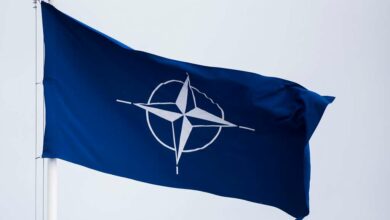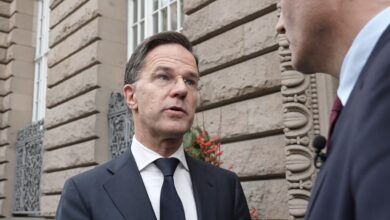Tripoli – Muammer Qadhafi's regime is in direct talks with Libya's rebels, a Russian envoy indicated, as the strongman's son said the way out of a months-long conflict is the staging of elections.
Russia's Mikhail Margelov, in Tripoli for one day after visiting the rebels in their Benghazi stronghold last week, made the remarks following a meeting Libyan Prime Minister Baghdadi al-Mahmudi.
"I was assured at today's negotiations that direct contacts between Benghazi and Tripoli are already underway," Margelov said, quoted by Russia's ITAR-TASS news agency.
"The Libyan prime minister told me that a round of such contacts concluded yesterday in Paris," he said, adding French President Nicolas Sarkozy "has been informed of the outcome of these contacts."
He did not disclose the nature of the talks, which could not be confirmed by the rebels' National Transitional Council.
Mahmudi said Qadhafi's departure from power was a "red line" that cannot be crossed, despite growing international calls for him to quit and the armed insurrection against his 41-year rule.
"Of utmost concern to us in any dialogue is the unity of Libya," Mahmudi told a news conference in Tripoli.
His remarks came after Qadhafi's son Saif al-Islam said the only way to break the deadlock was to hold elections in coming months.
"Elections, immediately and with international supervision. It's the only painless way to break out of the impasse in Libya," the son told Italian newspaper Corriere della Sera.
A US official said that proposals by Qadhafi's inner circle for democratic elections were "a little late" and that the Libyan strongman's days in power were numbered.
"It's a little late for any proposals by Qadhafi and his circles for democratic change. It's time for him to go," said State Department spokeswoman Victoria Nuland.
NATO warplanes early Thursday destroyed an apparently empty hotel, the Wenzrik, in central Tripoli near administrative buildings and Libya's state broadcaster, an AFP journalist reported.
The authorities took reporters to the site of the dawn raid, which left only sections of wall standing. They said the attack caused no casualties.
Libyan Deputy Foreign Minister Khaled Kaaim later denounced what he called a "barbaric and premeditated raid by NATO on civilians."
Kaaim refrained from commenting about Margelov's visit, but when pressed about possible negotiations about Kadhafi's departure, he said that "nobody can make such decisions."
Rebels were seen patrolling the streets of Zawit Bagoul, 20km (12.5 miles) from Zintan. Pro-Qadhafi positions on the village outskirts were deserted and loyalists left behind clothes, shoes and ammunition.
The rebels later also moved into Lawania, about seven kilometres away, and then Ghanymma, less than 10 kilometres from Yafran, as NATO aircraft were heard overhead.
NATO, which has carried out 10 weeks of air strikes against Qadhafi's forces, can see out its mission without ground troops, its operations commander said in a briefing.
Lieutenant General Charles Bouchard also said the military situation in western Libya, where there has been an upsurge in fighting, was developing "very positively."
Senior military officials from Britain and France, key players in the NATO campaign, have expressed concerns about how to maintain the NATO operation, which has been extended for a second three-month period from 27 June.
But French Foreign Minister Alain Juppe said in Algeria that "a very large majority of the international community" wanted Qadhafi to depart, even though this was not an aim of the UN resolution authorising NATO strikes on Libya.
Meanwhile Spain said it was expelling Libyan ambassador Ageli Abdussalam Ali Breni over the Qadhafi regime's repression of civilians and expelling three embassy officials for unspecified activities.
In Washington meanwhile, US Secretary of State Hillary Clinton accused Qadhafi's forces of using rape and violence against women as "tools of war."
Clinton said the United States was "deeply concerned" by reports of wide scale rape in Libya and "troubled" by reports that governments across the Middle East and North Africa were using sexual violence to punish protesters.
"Qadhafi's security forces and other groups in the region are trying to divide the people by using violence against women and rape as tools of war, and the United States condemns this in the strongest possible terms," she said.




